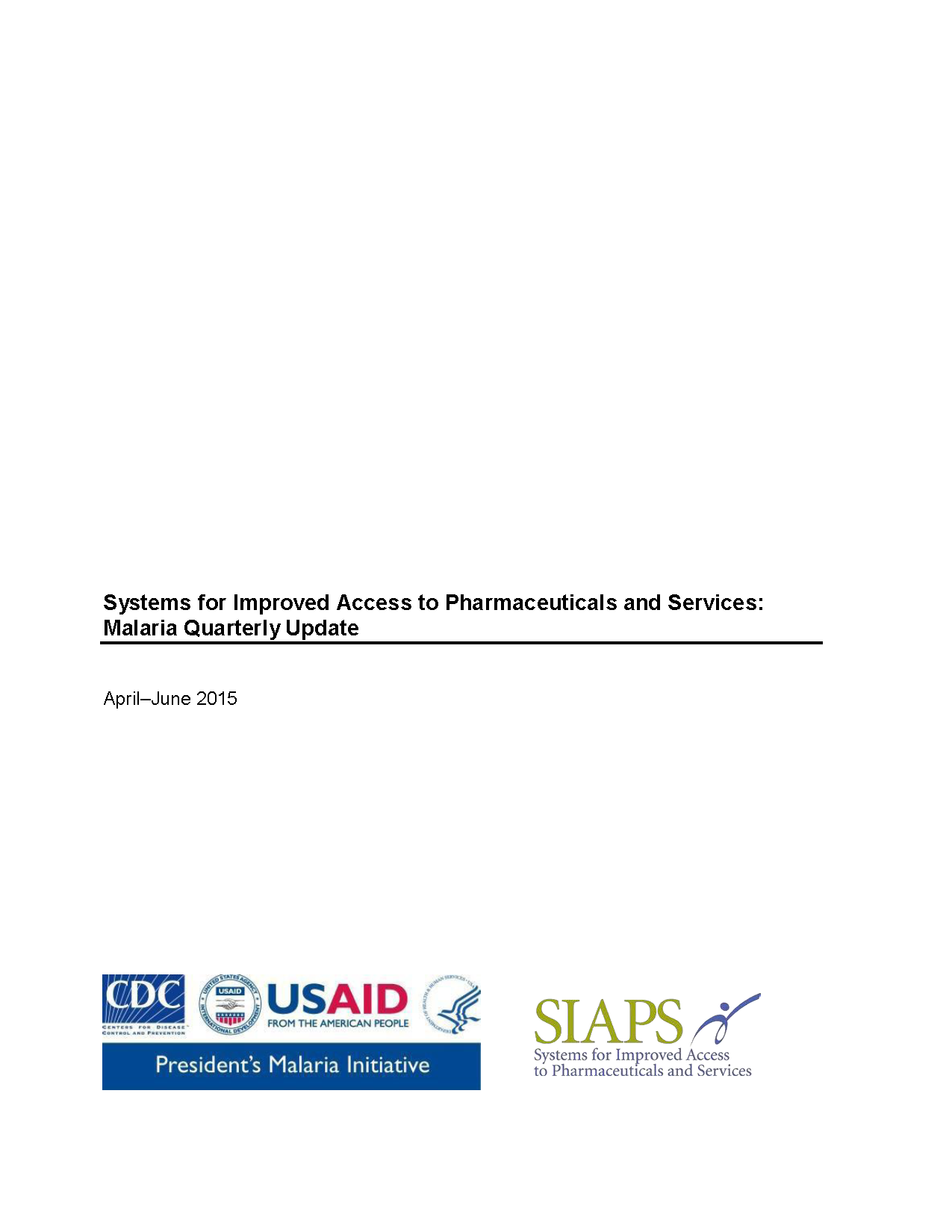
According to the World Health Organization (WHO), 1 malaria mortality rates fell by 47% globally, and by 54% in Africa between 2000 and 2013. During this period, an estimated 4.3 million malaria deaths were averted globally, primarily as a result of the scale-up of interventions. However, much remains to be done. Although 55 countries are on track to reduce their malaria case incidence rates by 75%, in line with the World Health Assembly and Roll Back Malaria (RBM) targets for 2015, these countries account for only 3% of all malaria cases.
Working closely with the President’s Malaria Initiative (PMI) in both Washington and PMI focus countries, the USAID-funded Systems for Improved Access to Pharmaceuticals and Services (SIAPS) Program aims to ensure the availability of quality pharmaceutical products and effective pharmaceutical services in support of PMI objectives. To this end, and based on the PMI’s priorities, SIAPS endeavors to: improve pharmaceutical governance; build capacity to manage malaria products while addressing the information needed for managing them; strengthen financing strategies and mechanisms to improve access to malaria medicines; and improve the quality of pharmaceutical services provided to malaria patients.
Areas supported by SIAPS include: training; quantification; strengthening supply chain systems, including logistics management information; community and malaria case management; rational use; and medication safety. SIAPS works to strengthen malaria pharmaceutical management at the national level in Angola, Burundi, the Democratic Republic of the Congo (DRC), Ethiopia, Guinea, Mali, and South Sudan. In addition, SIAPS provides regional support in Latin America.
This report briefly describes the major activities that SIAPS conducted at the global level and in each of the countries and region mentioned above between April and June 2015.


